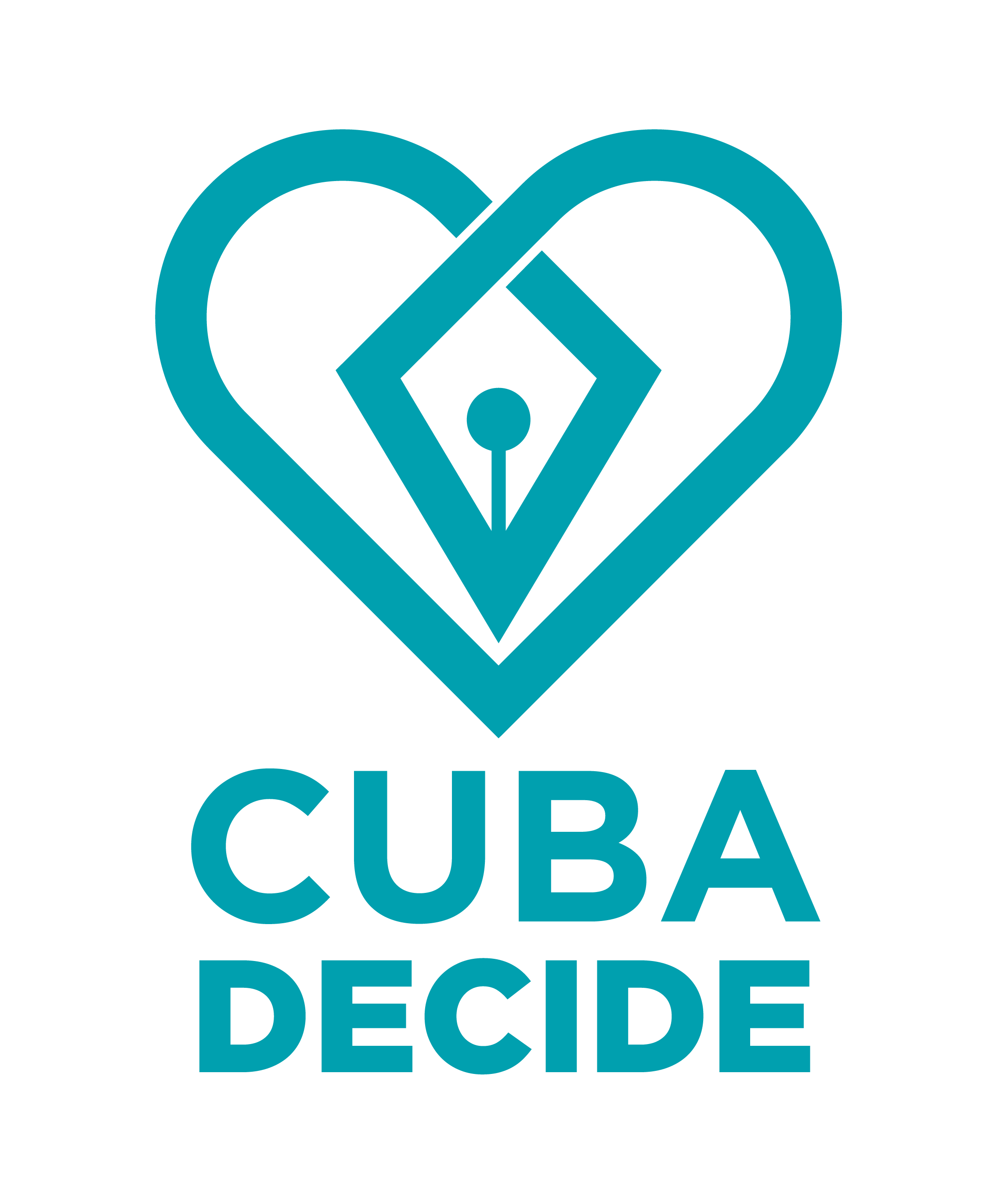This website uses cookies so that we can provide you with the best user experience possible. Cookie information is stored in your browser and performs functions such as recognising you when you return to our website and helping our team to understand which sections of the website you find most interesting and useful.
Achievement Summary January-April 2021
Cuba ignites in protest of the congress of the Communist Party
16 April, 2021Resumen de Logros Enero-Abril 2021
29 April, 2021
Throughout the first few months of 2021, Cuba Decide has been working harder than ever to fight for democracy and human rights in Cuba. Our efforts have been focused on the close monitoring of La Huelga Contra Represión, and garnering international support and solidarity for the strikers which resulted in the ultimate dispersal of the police barricade on the 21st day of the strike. Promoters of Cuba Decide also participated in the Interamerican Commission on Human Rights 179th Period of Sessions, where they presented evidence demonstrating several of the regime’s acts of repression in the midst of the pandemic, and also expressed concern about the application of systemic patterns that that have been exercised in different ways during the last year and violate human rights. In light of the 8th Congress of the PCC (Communist Party of Cuba), Cuba Decide promoted the #LuzdeAlarma protest claiming that the heads of the Communist Party cannot decide the future of the nation for the people. All over Cuba, houses and neighborhoods were flooded with lights from cell phones, candles and flashlights in a non-violent protest as thousands participated in the demonstration.
April 2021
On the night of April 15, Cuba ignited in protest of the congress of the Communist Party to claim that the heads of the Communist Party cannot decide the future of the nation for the people. All over Cuba, houses and neighborhoods were flooded with lights from cell phones, candles and flashlights in a non-violent protest promoted by the Cuba Decide initiative called “Luz de Alarma.” The protest was carried out by many civil society organizations and by thousands of Cubans who decided to light a #LuzdeAlarma just before the start of the 8th Congress of the Communist Party of Cuba (PCC).
On April 9, international solidarity and peaceful mobilization of Cubans forced the withdrawal of the police who had been surrounding the UNPACU headquarters on the 21st day of “La Huelga Contra Represión” (hunger strike against repression). Cuba Decide promoters garnered international support and solidarity from more than 75 human rights organizations and members of the media in the world, and were able to achieve urgent proclamations of support from the OAS Secretary General, the European Parliament, the United States Department of State, doctors in the diaspora, and government officials from Latin America, the United States, and Europe.
March 2021
In March, 53 promoters of Cuba Decide and members of UNPACU were on hunger strike. The strike demanded an end to the repression they face for trying to distribute humanitarian assistance to those in need in their area. On March 26, day 7 of the strike, promotors of Cuba Decide exposed the deepening crisis in Cuba during a press conference to an audience of over 75 international organizations and members of the international press, along with several hundred private citizens. In the conference, we requested international support and formally denounced the situation the strikers faced. Cuba Decide promoters made a request for the international community to immediately take action to stop the impunity by denouncing these acts. With his denunciation of “State terrorism that the dictatorship of Havana applies against its citizens,” Luis Almagro joined in the accusations that several promoters of Cuba Decide made before the IACHR in response to the repressive patterns implemented by the regime on the Island.
On March 18, before the Inter-American Commission on Human Rights of the OAS, a coalition of organizations presented evidence demonstrating several of the regime’s acts of repression in the midst of the pandemic, and also expressed concern about the application of systemic patterns that that have been exercised in different ways during the last year and violate human rights. The Foundation for Pan-American Democracy (FDP) outlined the Cuban regime’s repeated patterns of persecution amid deep humanitarian crisis and political repression throughout the island. The executive director of the FDP and promoter of Cuba Decide, Rosa María Payá, pointed out that “the repressive actions of the regime have even more grave consequences in the midst of the humanitarian crisis that Cuban families are facing… [the regime] deliberately [uses] coercion and violence against specific groups to instill fear in the population…the regime exercises state terrorism against the Cuban people.”
Cubans from the Island, and in exile, committed to the “Acuerdo por la Democracia[1]”, sent proposals for consideration by governments in the Americas and Europe through the platform Pasos de Cambio. The proposals exclusively focused on the subject of foreign policy towards Cuba. The platform has published the suggestions of Cuban opposition organizations and civil society, as well as citizens living in the Island and in the diaspora to allow for policies to be made based on the voices of the Cuban people.
February 2021
On February 18, Rosa María Payá published an opinion piece in the Washington Post where she proposes an alternate solution to President Joe Biden with regards to foreign policy towards Cuba.
She suggests: “Biden and Congress should make no unilateral concessions, but rather ask Cuba to make irreversible steps toward the recognition of fundamental human rights. These steps should include: the unconditional release of all political prisoners; the end of repression; and respect in law and in practice for freedom of expression, association — including independent political parties — public assembly and economic freedom.”
Moreover, in the article she insists that: “Biden should consider denouncing the regime’s illicit activities, including the exploitative use of the “medical brigades,” and seek to prosecute in courts those individuals linked to criminal and terrorist activities. He should ask other nations in our hemisphere to take similar steps. He should also promote the participation of Cuban independent civil society groups in the Summit of the Americas to be held in the United Sates, and veto the participation of the Cuban regime until it complies with the articles of the Inter-American Democratic Charter.
On February 12, Cubans from the Island, and in exile, committed to democracy, sent proposals to various sectors of the United States government. After receiving over 162 proposals exclusively on the subject of United States foreign policy towards Cuba, the platform Pasos de Cambio has published the suggestions of Cuban opposition organizations and civil society, as well as citizens living in the Island and in the diaspora. The proposals were sent to President Biden and Vice President Harris, the Bureau of Western Hemisphere Affairs, and the foreign policy committees of the United States Congress.
January 2021
Cuba Decide released a video summarizing the exponential growth of protests on the Island. Protesters have been raising their voices in opposition to systemic political, civil, economic and social issues affecting our daily lives and in favor of a change in the system. These protests are evidence that the opposition movement and the Cuban people’s desire for change have continued to expand to a point where it cannot be ignored any longer.
On January 27, Cuba Decide hosted its next installment of the Rumbo al Cambio series. This series, “Left, Right, Uppercut,” was an open dialogue between Rosa María Paya and panelists of diverse political standing. This part of the series was dedicated to bringing the views of members of civil society and the Cuban opposition to light. There was also a focus on certain proposals of foreign policy and solidarity from the international community towards the Island extended by distinguished politicians and officials of Latin American, North American and European national parliaments together with representatives of the Cuban-American community.
After several pleas to the Obama and Trump administrations, respectively, the United States reinstated Cuba on their list of countries who engage in state-sponsored terrorism as of January 11, 2021. For many years, Rosa María Payá requested the administrations to reincorporate the Cuban regime on this list along with other Cubans. This reinstatement recognizes the obvious ties the Castros and the military leadership of the regime have with activities related to terrorism, legitimizing the threat they pose to the citizenry of Cuba.
[1] https://www.pasosdecambio.com/agreement

